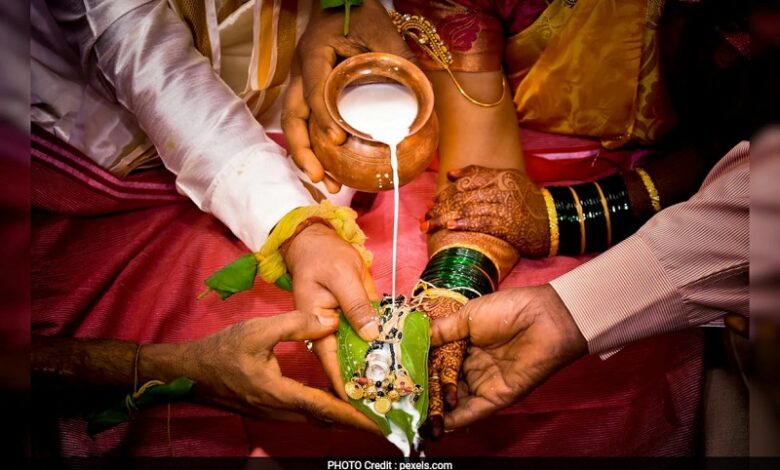
In a recent landmark ruling, the Supreme Court of India delved into the intricacies surrounding Hindu marriages, shedding light on the legal requisites and sanctity enshrined within the framework of the Hindu Marriage Act 1955. This judicial pronouncement, delivered by a bench comprising Justices BV Nagarathna and Augustine George Masih, elucidated upon the fundamental principles governing the validity of Hindu marriages, accentuating the significance of adherence to prescribed rites and ceremonies in ensuring the legality and authenticity of marital unions.
The essence of the Court’s ruling lies in its unequivocal assertion that the solemnization of a Hindu marriage necessitates the observance of requisite ceremonies, including the pivotal saptapadi ritual, which entails the circumambulation of the sacred fire by the wedded couple. The Court underscored the indispensable role of such ceremonies in conferring legitimacy upon Hindu marriages, emphasizing the imperative of furnishing proof of these ceremonies to substantiate the validity of marital bonds in cases of contention or dispute. It was stated:
“For a valid marriage under the Act, the requisite ceremonies have to be performed and there must be proof of performance of the said ceremony when an issue/controversy arise. Unless the parties have undergone such ceremony, there would be no Hindu marriage according to Section 7 of the Act and a mere issuance of a certificate by an entity in the absence of the requisite ceremonies having been performed, would neither confirm any marital status to the parties nor establish a marriage under Hindu law.”
In unequivocal terms, the Court articulated, “Where a Hindu marriage is not performed in accordance with the applicable rites or ceremonies such as saptapadi when included, the marriage will not be construed as a Hindu marriage.” It elucidated that compliance with Section 7 of the Hindu Marriage Act, which delineates the procedural requisites for a valid Hindu marriage ceremony, is imperative for the legal recognition of marital ties under Hindu law.
The Court further elucidated on the role of marriage registration under Section 8 of the Act, delineating its function as facilitating the evidentiary proof of a valid Hindu marriage. However, it underscored that registration alone does not confer legitimacy upon a marriage if it has not been solemnized in accordance with the prescribed ceremonies outlined in Section 7. Thus, while registration may serve as corroborative evidence, the absence of a valid marriage ceremony renders registration devoid of legal efficacy in establishing the legitimacy of marital bonds.
In elucidating the sanctity of Hindu marriage as a sacrament and the cornerstone of familial and societal harmony, the Court issued a resounding rebuke to the prevalent practice of couples seeking to acquire the status of husband and wife without adhering to the requisite marriage ceremonies. It condemned such actions as antithetical to the sacred ethos of marriage and underscored the paramount importance of upholding the sanctity of marital unions in Indian society.
In the words of the Court, “A Hindu marriage is a samskara and a sacrament which has to be accorded its status as an institution of great value in Indian society.” It exhorted young couples to introspect deeply on the institution of marriage, emphasizing its profound significance beyond mere societal conventions or expediency.
Moreover, the Court offered scathing criticism of the commercialization of marriage and the commodification of sacred rituals, cautioning against the reduction of marriage to a frivolous spectacle bereft of its inherent solemnity and spiritual essence. It deprecated the rampant practice of demanding dowry and exchanging gifts under duress, reiterating that marriage is a sacred covenant rooted in mutual respect and dignity, rather than material transactions or ostentatious displays.
In a poignant reflection on the intrinsic value of Hindu marriage, the Court extolled its role in fostering familial bonds, facilitating procreation, and nurturing the spirit of fraternity within diverse communities. It underscored the transformative power of marriage as a conduit for spiritual elevation and personal fulfillment, imbued with the promise of lifelong companionship and mutual support. Furthermore, the Court issued a clarion call for the diligent observance of marriage ceremonies, cautioning against any deviation or trivialization of these sacred rites. It emphasized that the solemnization of a Hindu marriage is not a perfunctory affair but a profound spiritual journey that demands reverence, diligence, and unwavering adherence to tradition.






